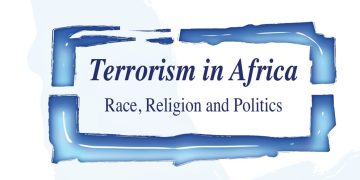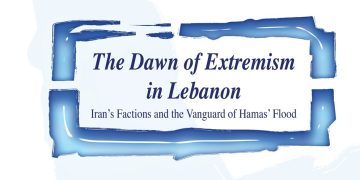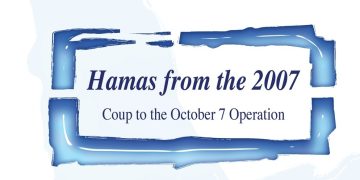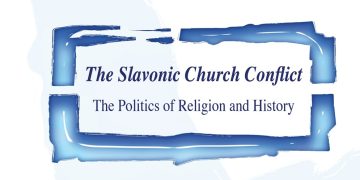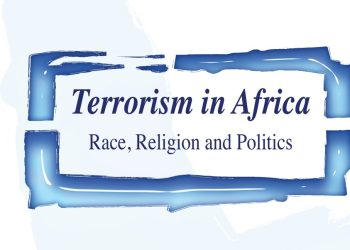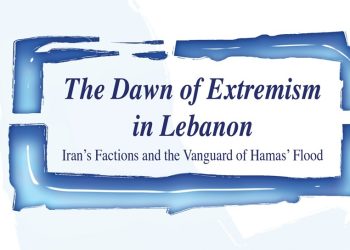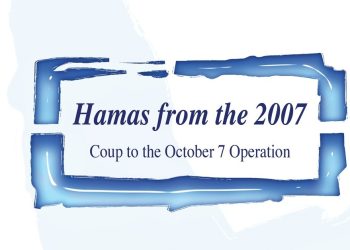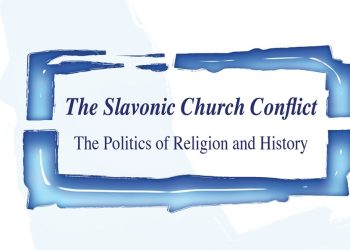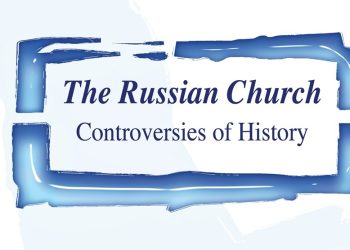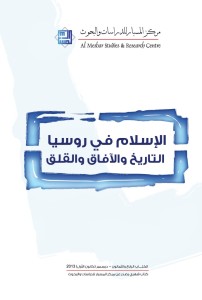 Since its inception, Al-Mesbar Center has examined the interplay among Islam, Islamism, and the great cultures of the world — from Europe and the Americas to Spain, North Africa, the Middle East, the expanse of Africa below the Sahara, and deep into Asia. In its 84th monthly book — December 2013 — the Center breaks new ground. The study is called “Islam in Russia: History, Horizons, and Concerns.” It explores the complex history of Islam in Russia, the advent of Islamist movements, and the road ahead for Russian Muslims and the Moscow elites who rule them.
Since its inception, Al-Mesbar Center has examined the interplay among Islam, Islamism, and the great cultures of the world — from Europe and the Americas to Spain, North Africa, the Middle East, the expanse of Africa below the Sahara, and deep into Asia. In its 84th monthly book — December 2013 — the Center breaks new ground. The study is called “Islam in Russia: History, Horizons, and Concerns.” It explores the complex history of Islam in Russia, the advent of Islamist movements, and the road ahead for Russian Muslims and the Moscow elites who rule them.
The book offers a historical overview of Islam in Russia, from the days of the Tatars through the peasant revolutions, the Bolshevist revolution, and past the fall of the Iron Curtain. It explains the continuities as well as the discontinuities of Russian Islam through time. It parses the different strands of Islam within the country, from Sufism to “official Islam” to “popular Islam” to the uniquely Russian “Parallel (Mawazi) Islam” — and traces the shifts in their respective relationships with the ruling authorities. Islam in Russia requires greater attention among Islamic affairs specialists broadly speaking — and this book aims at least to lay the groundwork for further inquiry.
The first chapter is a study by Lebanese Russian affairs specialist Khalid Mamduh al-Izzi: “Political Islam in the Context of Russian Politics.” Despite the specific focus of its title, the chapter ably provides a socio-historical overview of Russian Islam in relation to the politics of Moscow. Muslims participated in the great Russian peasant uprisings of the 18th century. In 1917, Muslims participated in the Bolshevik revolution — though following its success, they became one among several faith communities who were persecuted by the new authorities. In his exploration of present political outlooks in Russia, Al-Izzi says that Russian Muslims view Wahhabism and the Muslim Brotherhood as dangers inasmuch as they may potentially influence the young generation in the country. Broader awareness of the threats posed by various Islamist groups has grown over time. In the Putin era, the Russian leadership manifested a keen awareness of the importance of respecting the rights of Muslims on the one hand while checking extremist political trends within the Muslim community on the other.
Murad Batal al-Shishani, a Jordanian scholar specializing in Islamist movements, next takes on the subject of “official islam” — that is, state-sanctioned Islam — in the northern Caucasus, as well as a rival strand of “Parallel Islam” that evolved over time in the same region. A Soviet policy of sanctioning an official Islamic leadership to collaborate with the ruling authorities provoked a response from Muslims opposed to the establishment. This became known as the “parallel” Islamist stream. Operating largely in the shadows, its power grew as the popularity of official Islam declined for the latter’s fealty to an increasingly unpopular state apparatus. The researcher notes that communist state propaganda against religion had been absolute in 1927, but became more nuanced in the case of Islam by 1957 — targeting the “parallel” strand alone. Later, government attacks intensified against Sufism in Chechnya, particularly after the 1979 “Islamic revolution” in Iran and the Soviet invasion of Afghanistan. But amid a resurgence of nationalism following the collapse of the Soviet Union, religion regained a place in the public political discourse. “Parallel Islam” became a home address for the rising number of Salafis in the country whose political outlook had a great deal in common with that of Salafis in the Middle East. This community found itself in a state of enmity with Russian Sufism. It was in this context that the Russian leadership identified “Wahhabism” as its enemy and established an alliance with Chechen mufti Ahmed Gadirov, who opposed the ideology and went on to head the pro-Moscow Chechen government. The alignment of Gadirov with the Russian government represented a new schism within the “Parallel Islam” movement of which he was a part. In this context, for the first time, Gadirov and his supporters within the movement realigned themselves with the Sufi Qadiri order, also friends of the government in Moscow. At this time, “official Islam” in the Russian Federation is represented by the “Council of Muftis.” As for the northern Caucasus, the Sufi orders which had been hostile to Russia have been integrated into “official Islam.” Indeed, it was in cooperation with the Qadiri order in the Chechen republic that Russians built the “largest mosque in Europe.”
Ahmed Abd al-Hafiz Fawwaz, a professor of political science at the University of Cairo, builds on the main contentions of Shishani’s study in his own paper, which describes the obstacles to harmonizing the diverse community of Muslims in Russia. Internecine fighting caused 1,225 deaths in 2012, he notes. Russian Sufi orders had long ago coalesced as an arsenal of Caucasian resistance in Czarist Russia. In the Soviet period, Sufis jointly negotiated an arrangement with the government to accept secular authority and practice their religion privately. As to how Salafis found their way into the USSR in the late 1980s, the author views this trend in socioeconomic terms, and highlights the significance of the conflict in Chechnya and the influence of Middle Eastern ideologies on Russian Muslims who visited the Arab region. The author finds that the conflict between Salafism and Sufism in Russia exploded in 1997 and has been growing. 2011-12 saw a chain of assassinations, including of prominent Sufi leaders such as Maqsud Sadijov, who was assassinated in 2011; and Said Efendi, killed on August 28, 2012. These operations were blamed on Salafi jihadist groups. The study shows that the Russian government has addressed the Salafi phenomenon through a combination of security crackdowns and political containment efforts. The researcher concludes that the Russian technique for countering violent Islamist groups addresses the symptoms of the problem but ignores the root causes.
Mirbik Fatshaghiv, a French researcher of Chechen origin, contributes a study of the Muslim Brotherhood in Russia. The international Brotherhood movement attempted to gain control of Islamist groups in Russia following the breakup of the Soviet Union, beginning in the 1990s. The authorities worked hard to undermine the influence of the group, viewing it as hostile to the nascent Russian Federation. As a result, Brotherhood activists were forced to go deep underground, with minimal organization and utmost secrecy, making Brotherhood influence in the country considerably weaker than that of other Islamist groups. The researcher examines the more recent Russian initiative to lift the ban on the Muslim Brotherhood to enable Russian officials to meet with their leaderships. This effort paved the way for the meeting between Foreign Minister Sergey Lavrov and the head of the political bureau of Hamas, Khalid Mash’al. The author of the study believes that the Russian leadership will be forced to end its leniency toward the Brotherhood in the future in order to acquire allies in region. He also points to some confusion in Russia as to how to categorize the various Islamist movements. He notes that there are many Russians who do not distinguish Salafism from the Muslim Brotherhood. He speculates that Brotherhood activity in Russia may also inspire politicized Christianity of a parallel nature to gain ground. He suggests that the Brotherhood will have ultimately to make political concessions in Russia as the price of entering the realm of legally sanctioned politics. At present, he concludes, the Brotherhood’s influence is limited — but it may ultimately gain ground in the country.
Next, Palestinian scholar Umar Mahamid presents a lengthy historical departure, then goes on to explore Russian politics toward the “Arab spring.” He notes that mainstream Russian policy intellectuals are not in agreement in their interpretation of the Arab revolutions; there are various schools of thought among elite circles as well as the Russian street. Some policymakers are concerned that Russia may lose considerable influence in the Middle East and North Africa due to its policies toward the Arab region over the past three years. Many Russian specialists view the political changes in post-revolutionary Egypt, Libya, and Tunisia somewhat disparagingly: They feel that the new electoral processes will mainly aggravate internecine conflict along sectarian and ethnic lines, leading to a succession of humanitarian tragedies. Mahamid contends that the Russian leadership essentially supports the Egyptian military, though it does not declare as much publicly. Regarding Syria, he notes that Russia and Saudi Arabia have sought for decades to reach agreements that could improve the relationship between Russia and the Gulf region as a whole. He views Putin as having restored Russia to the international stage — in Asia, Africa, Latin America, and the Arab world.
Syrian novelist Najat Abd al-Samad contributes a review of the book, The Fates of Islam in Russia: History and Horizons, by Ramadan Abd al-Tyubov, a Russian author of Daghestani origin.
For its “study of the month,” the editorial board presents the paper, “What Lies Behind the Ideological Failure,” by Hammud Hammud, a Syrian specialist in Islamic philosophy. The paper considers the potential evolution of political thought in the Arab region following the decline of Islamist movements.
Tariq Abd al-Jalil, an Egyptian specialist in Turkish affairs, continues his reporting on the situation in Turkey today. In this month’s volume, he describes how various Islamist and secular Turkish parties have responded to Turkish prime minister Recep Tayyip Erdogan concerning the controversy over co-ed housing in Turkish universities.
The Al-Mesbar Center would like to thank all the researchers who contributed to this volume — and in particular, our colleague Ibrahim Amin Nimr, who worked tirelessly to coordinate its development. We also thank Majid bin Abd al-Aziz al-Turki of the Arab-Russian Center for Media and Studies for his invaluable assistance.


